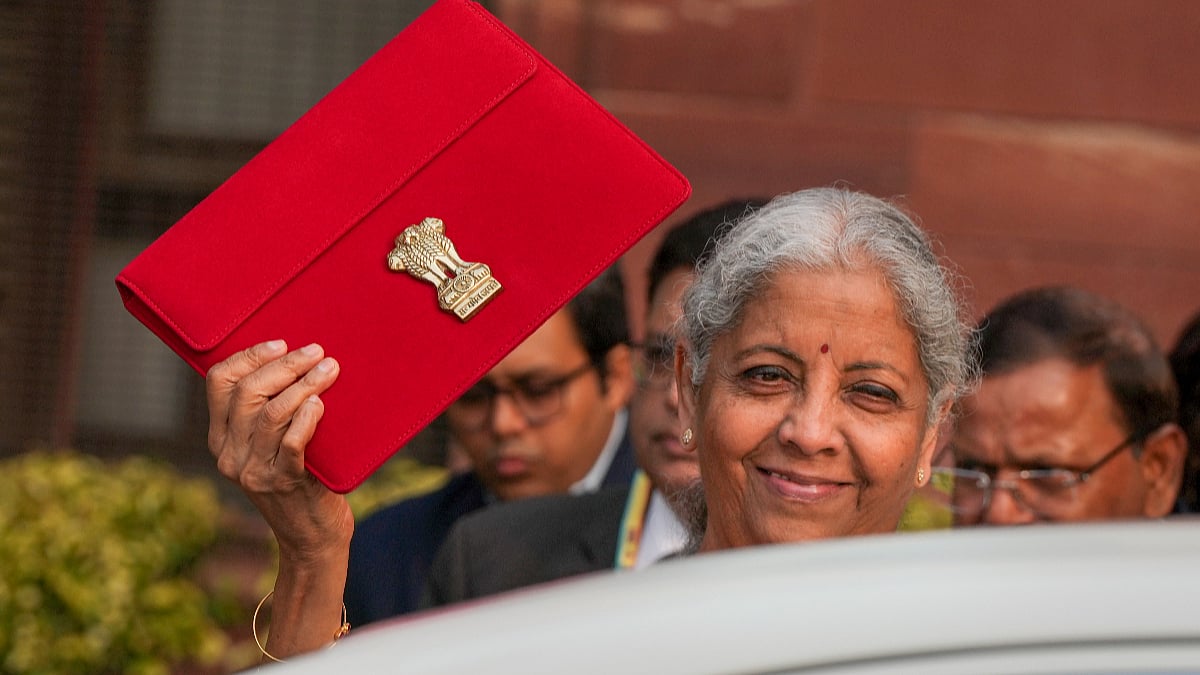Former chief economic adviser Arvind Subramanian on Wednesday said the FRBM Act will probably have to be revised by the end of the year as India will witness a sharp decline in GDP growth due to the COVID-19 crisis.
Addressing a webinar organised by EY India, Subramanian further said while labour reforms were necessary, the way they have been done by some states have undermined basic protections to workers, especially in light of the migrant crisis.
"It is going to be a very very difficult economic year. We should brace ourselves for a sharp decline in GDP growth. "We should also brace ourselves for the fact that India's deficit almost certainly will be double digit. India's fiscal situation is going to be very, very difficult," he said.
Subramanian, currently a visiting professor at Harvard University, further said reviving the financial sector is going to be critical for stimulating economic growth. Talking about India's current macroeconomic situation amid the COVID-19 pandemic, he said the Fiscal Responsibility and Budget Management (FRBM) Act and terms of reference of the 15th Finance Commission will probably have to be revised and updated. "Compared to the Budget 2020-21, I think the facts have changed. We will probably have to revise, and update Budget numbers, the FRBM framework and the terms of reference of the 15th Finance Commission at the end of the year," Subramanian emphasised. The FRBM Act of 2003 seeks to reduce the country's fiscal deficit through financial discipline. He also pointed out that due to the Rs 20 lakh crore economic package announced by the government to mitigate the impact of the COVID-19 pandemic, India's debt-to-GDP will rise to 85 per cent. The eminent economist also noted that the pandemic in India is not under control. "Developing countries are much more vulnerable and have less fiscal space than advanced economies. Lockdown has been much more severe on developing countries," he said. Noting that India entered into lockdown when its economy was already slowing, Subramanian said, "It will take a lot of hard work for India to again start growing at 6 per cent." The former CEA also said the pandemic and the lockdown have made the case for Universal Basic Income (UBI) stronger. Talking about labour reforms, Subramanian said it is true that India's labour laws required change. "But these labour reforms have probably undermined basic protections which are absolutely critical," he said. In recent weeks, various state governments, including Uttar Pradesh and Gujarat, have either made amendments or proposed changes to existing labour laws as part of larger efforts to help businesses hit hard by the COVID-19 pandemic. Subramanian observed that it is not clear whether these kind of tweaks will be attractive enough for investors because they will say if things can be so drastically changed in one direction, then what is the guarantee that they will not be reversed equally suddenly? "I think... action like this may not generate the kind of long term trust and credibility in policy that are required to take advantage," he opined.
He also said the Insolvency and Bankruptcy Code (IBC) needs some modifications as due to the coronavirus-induced lockdown many firms will go bankrupt. "We also need bad bank in select sectors," he added.
Subramanian also pointed out that India must shed its protectionist attitude and become an exporting economy. "Unless India's exports grow at 15 per cent, we won't get 8 per cent growth. For that, we should reverse some of the protectionist measures taken. "If we turn protectionist, I don't know how can we be an exporting power. Self-sufficient exporting powerhouse is an oxymoron," he said.
The former CEA also termed the Centre's decision to allow states to borrow 200 basis points more than their fiscal deficit ceiling as an 'IMF-like programme'. "In the height of a pandemic, putting such conditions may not be the right thing to do. Asking states to carry out power sector reforms is desirable but this may not be the right time," he argued.









